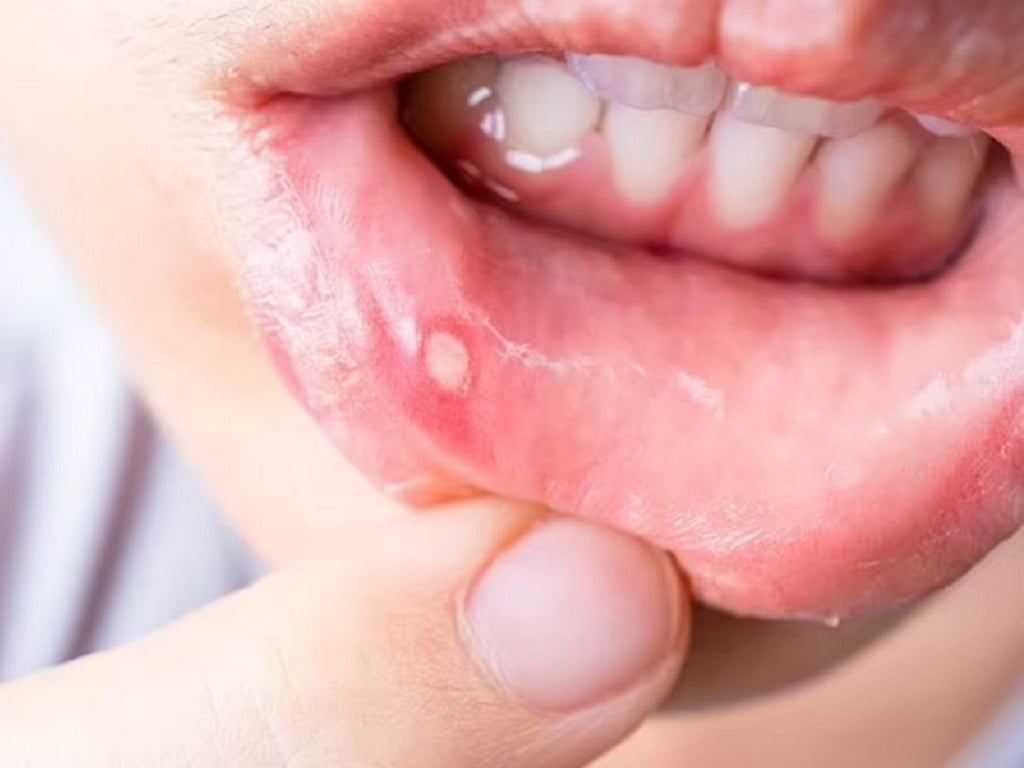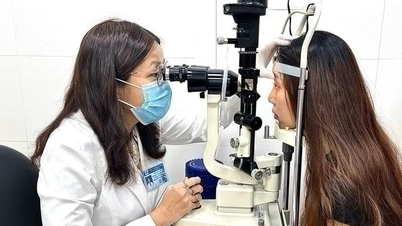A person can have a sexually transmitted infection (STI) and not know it. If they have unprotected sex, they can pass it on to others, according to The Health Site .

Syphilis, gonorrhea or herpes can cause sores on the lips and throat.
Common sexually transmitted diseases include chlamydia, gonorrhea, genital warts, herpes, scabies, syphilis and papillomavirus. According to medical experts, these diseases can be difficult to treat, especially when detected in the late stages. Therefore, early recognition of symptoms is very important.
People with sexually transmitted diseases will experience symptoms on the genitals such as rash, painful urination, abnormal vaginal discharge, bleeding, genital itching, blisters... However, some symptoms can also appear on the face such as:
mouth ulcers
Syphilis, gonorrhea, or herpes can cause sores and blisters on the lips and throat. The germs are spread through contact with genital fluids or skin-to-skin contact. The sores can be relieved of pain and healed more quickly with prescription antiviral ointments.
Red eyes
Herpes and gonorrhea bacteria, when entering the eyes, will cause conjunctivitis, or pink eye, making the eyes red and painful. The cause of infection is when the patient's hand touches the genitals with the pathogen, then touches the eyes or touches the contact lenses.
Red rash on face
For people with multiple sexual partners, if they suddenly have a red rash on their face for no apparent reason, it could be a sign of a sexually transmitted disease.
The rash may initially appear on a small area of skin and then spread rapidly. Applying moisturizers and medicated lotions can help reduce these uncomfortable red patches.
Hair loss
Hair loss is a very normal phenomenon of the body. On average, a healthy person loses 50 to 100 strands of hair a day. However, hair loss due to syphilis is very different. The patient will lose a lot of hair and it happens suddenly. Each day, they can lose up to 1,000 strands. Doctors will treat this condition with the antibiotic penicillin, according to The Health Site .
Source link



![[Photo] Prime Minister Pham Minh Chinh receives Swedish Minister of International Development Cooperation and Foreign Trade](https://vphoto.vietnam.vn/thumb/1200x675/vietnam/resource/IMAGE/2025/5/12/ae50d0bb57584fd1bbe1cd77d9ad6d97)
![[Photo] Prime Minister Pham Minh Chinh starts construction of vital highway through Thai Binh and Nam Dinh](https://vphoto.vietnam.vn/thumb/1200x675/vietnam/resource/IMAGE/2025/5/12/52d98584ccea4c8dbf7c7f7484433af5)
![[Photo] Prime Minister Pham Minh Chinh works with the Standing Committee of Thai Binh Provincial Party Committee](https://vphoto.vietnam.vn/thumb/1200x675/vietnam/resource/IMAGE/2025/5/12/f514ab990c544e05a446f77bba59c7d1)



























































































Comment (0)